Aguirre, The Wrath of God.
- decapvada
- Dec 16, 2024
- 3 min read
Updated: Feb 15, 2025
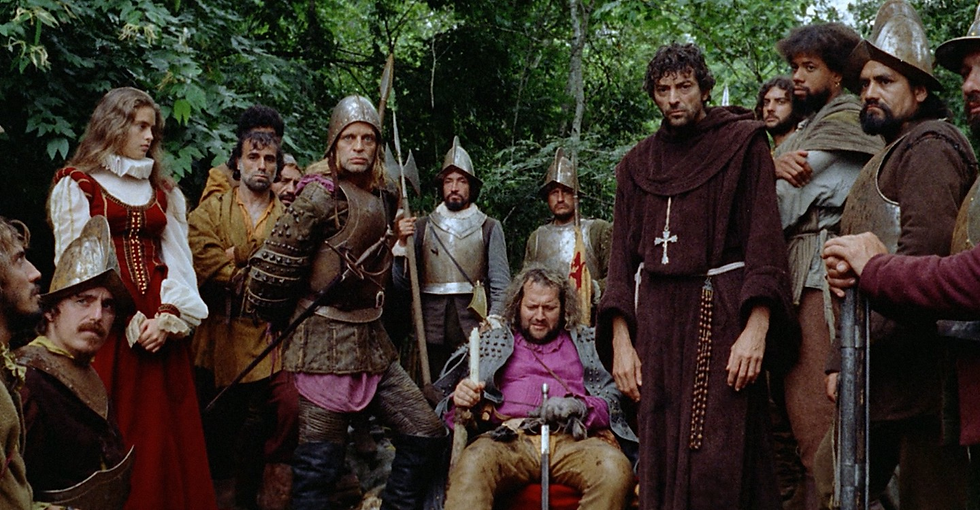
It is fitting that Aguirre, The Wrath of God (1972) would be recommended to me based on my love of Andrei Tarkovsky’s Stalker (1979). There are similar themes in both of these movies dealing with man’s ambition and the journeys he will go on to achieve.
On Christmas day in 1560, an endless line of Spanish conquistadors and a hundred native slaves snake through the Amazon rain forest. Conquistadors are explorers and warriors in the Age of Discovery expanding the New World for Spain and Portugal. After conquering the Inca Empire, led by Gonzala Pizarro, they searched for the fabled city of gold, Eldorado.
Much of this journey takes place on rafts along the Amazon River. It is a marvel of filmmaking, mirroring Coppola's soon-to-be-made Apocalypse Now and its turmoil-filled production. Filmed in an at times suffocating, documentary style, the frame of the forest and the presence of the elements are unrelenting and omnipresent to both the audience and the Spanish.
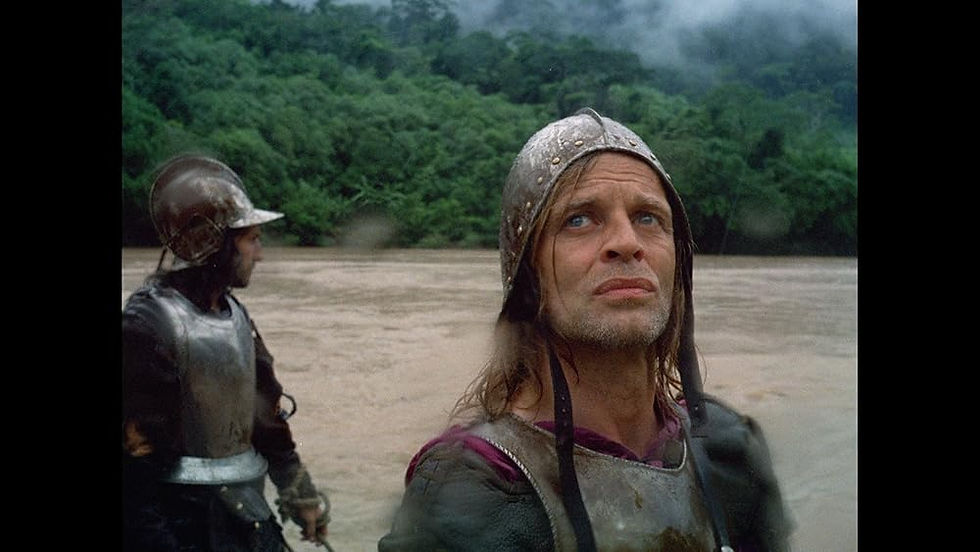
The idea came to director/writer Werner Herzog when reading an adventure book and discovering Lope de Aguirre, a figure of Spanish history worth loathing. Aguirre, The Wrath of God, would become Herzog's first collaboration with actor Klaus Kinski, a man the director learned of when Kinski rented a room in his family’s apartment building. Kinski was a notorious troublemaker, a man who carried a shadow in his eyes. Kinski never forgot the actor and when writing the screenplay, knew that only he could portray Aguirre.
Indeed, it is Kinski’s embodiment of Aguirre’s intense madness that informs so much of the film’s power, and with little dialogue. With his maddened eyes, intense stares, and purposeful stance, he is a man of deep thought and great intelligence with the self-belief to do what is best for his quest for power. So intensely consumed by his ideas, Aguirre is the physical embodiment of all that is wrong about man’s will to achieve and to expand.
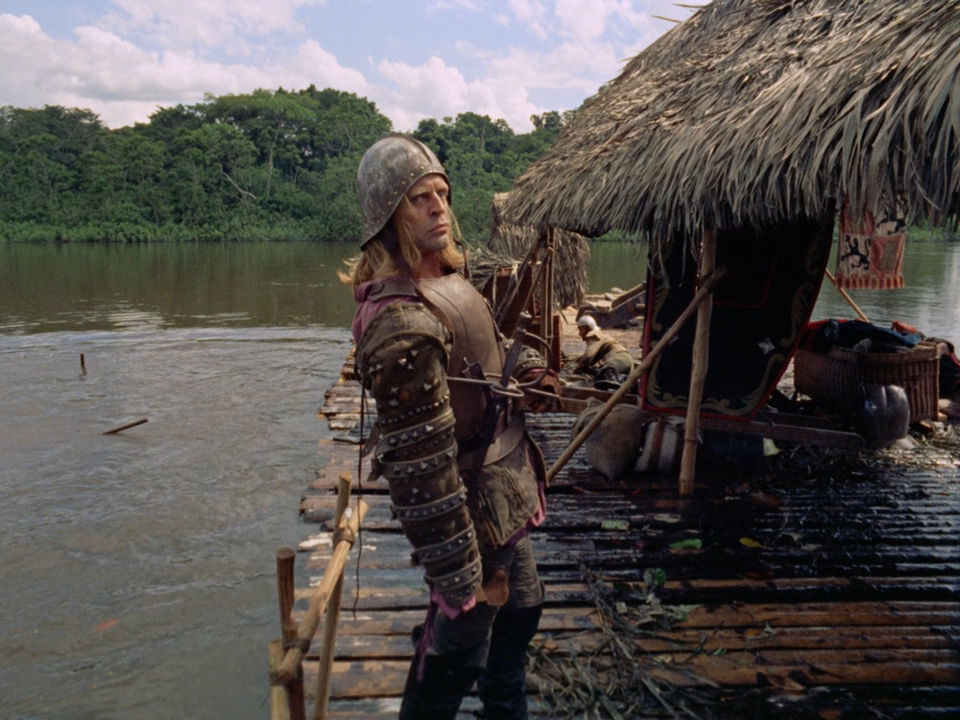
Yet it is against the backdrop of nature where the folly of man’s ideals becomes apparent. Against the strength of the elements, man cannot succeed. The river is unfathomable, unforgiving. The Spanish struggle, endure, and one by one, fall. However, there is another force of nature at work here, as the arrogance of Aguirre systematically undoes the journey through devious machinations and inspirational speeches. Order is undone, lost to the chaos of the rapids of the river and Aguirres's aspirations.
Against the oldest power on earth, the movie asks, is man’s desire worthy? At the climax, once Aguirre's self-belief and arrogance have set him up as the instrument of God, he is alone, and still, he believes, maddened, unmovable. The final, circling shot of the raft all but empty is haunting, reminding of the futility of man’s arrogance and insanity. Life, death, fate, nature, they do not care for what you wish to do with your life. It is cruel and inconsiderate, and no matter how intense your self-belief, no matter how charismatic and resourceful Aguirre can be, the conviction of his ideas cannot stand up to the wrath of the earth.
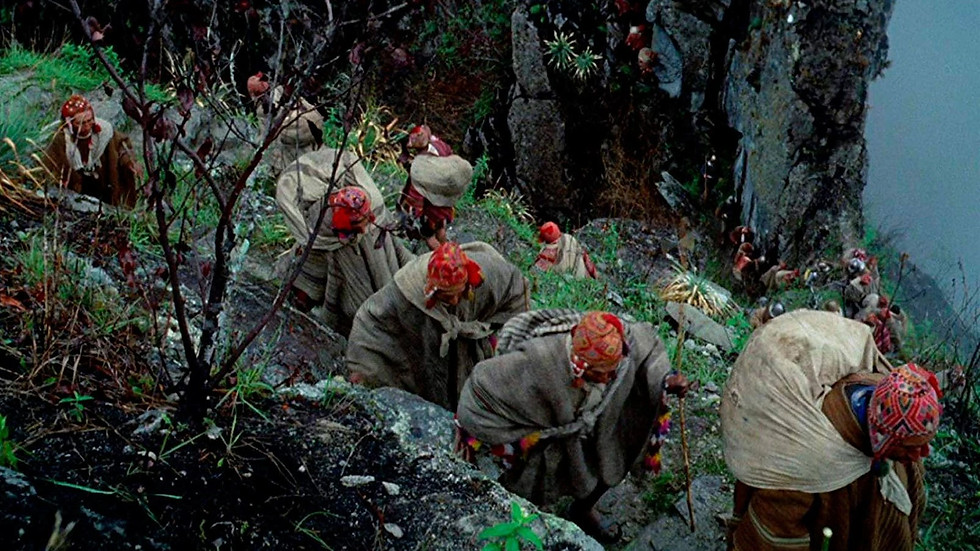
Among the questions Tarkovsky’s masterpiece Stalker asks of the faith of man, it is more interested in wondering whether it is better for man to believe in a greater reward at all in order to survive the hardships of life. Stalker’s protagonists reach a level of self-awareness that perhaps Aguirre could never dream of, for the pull of his own greed and arrogance is so consuming that even when faced with hallucination and starvation, he would rule over a kingdom of monkeys if it would further his goals.
A creative like myself spends his whole life dreaming of finishing my life’s work, a journey with an end in sight and yet the sense of fabled completion at the end of it never nears. Will my goals ever be reached? Does it matter? Is it better to spend my life striving, doomed to watch a life of placebo flash before my eyes when I die?
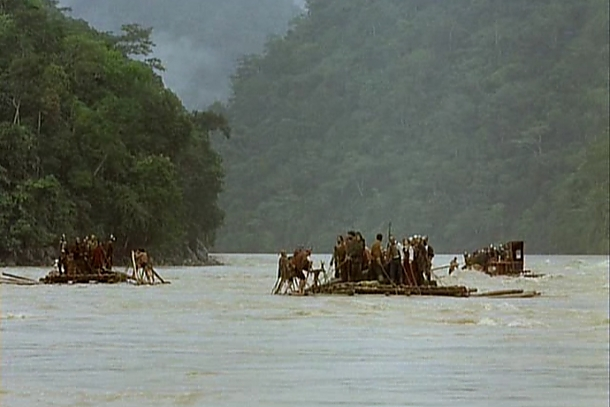
Tarkovsky wrote that if one knows one is great, why even write in the first place? It is the reach for greatness that matters, and in light of Herzog’s Aguirre, the Wrath of God, I have to wonder, am I mad?


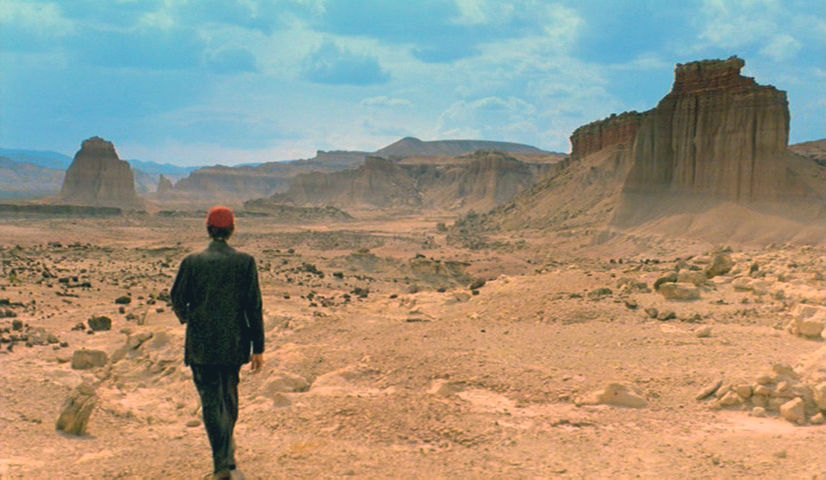

Comments